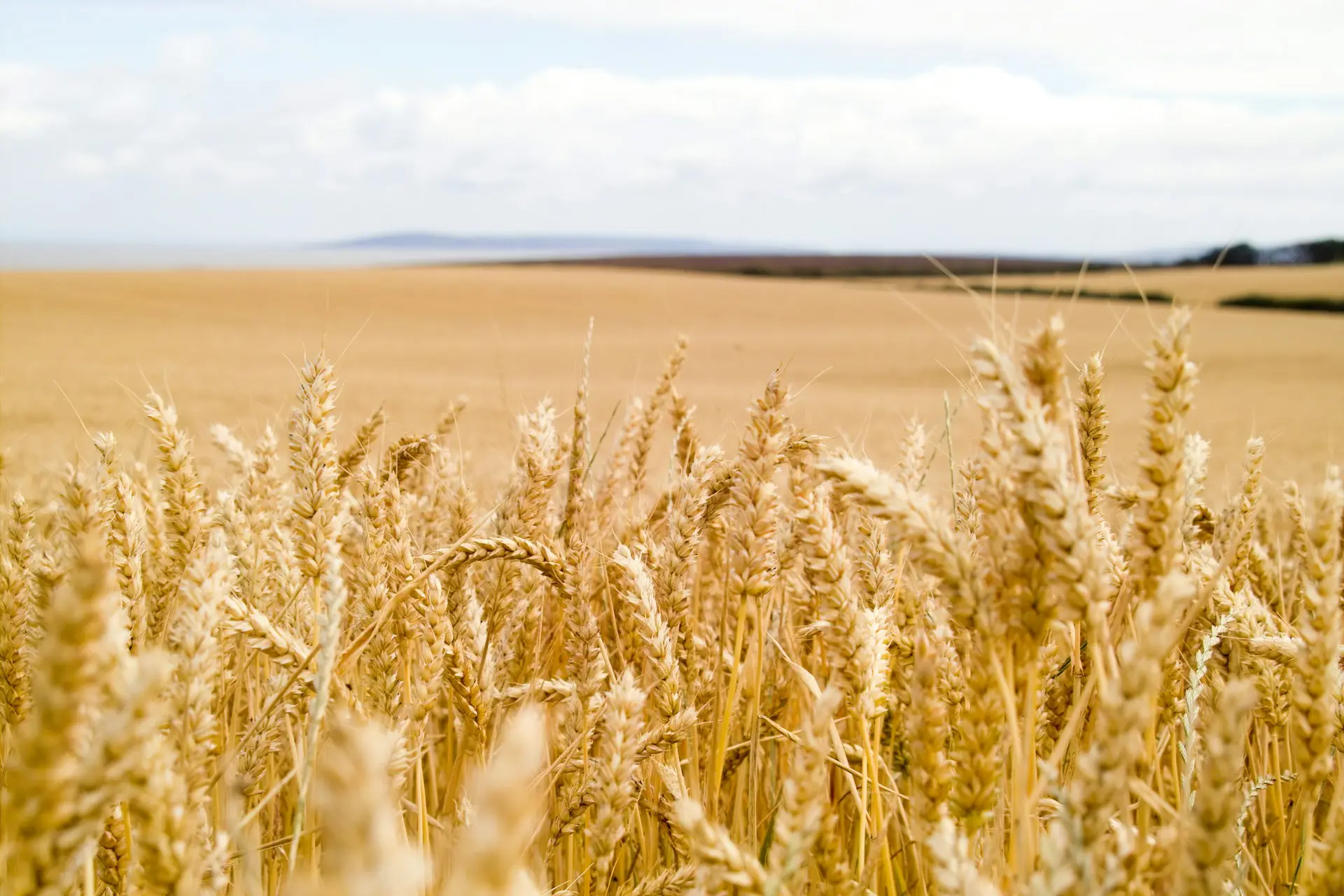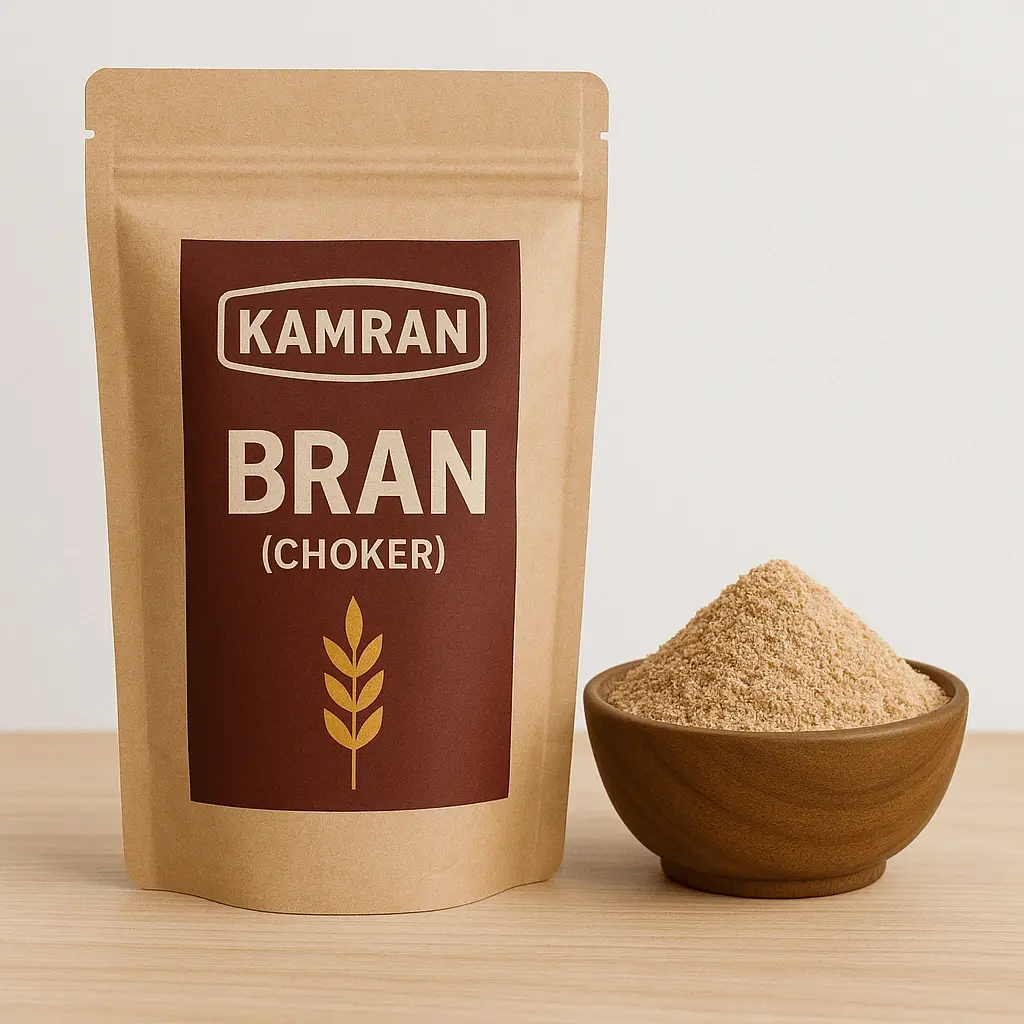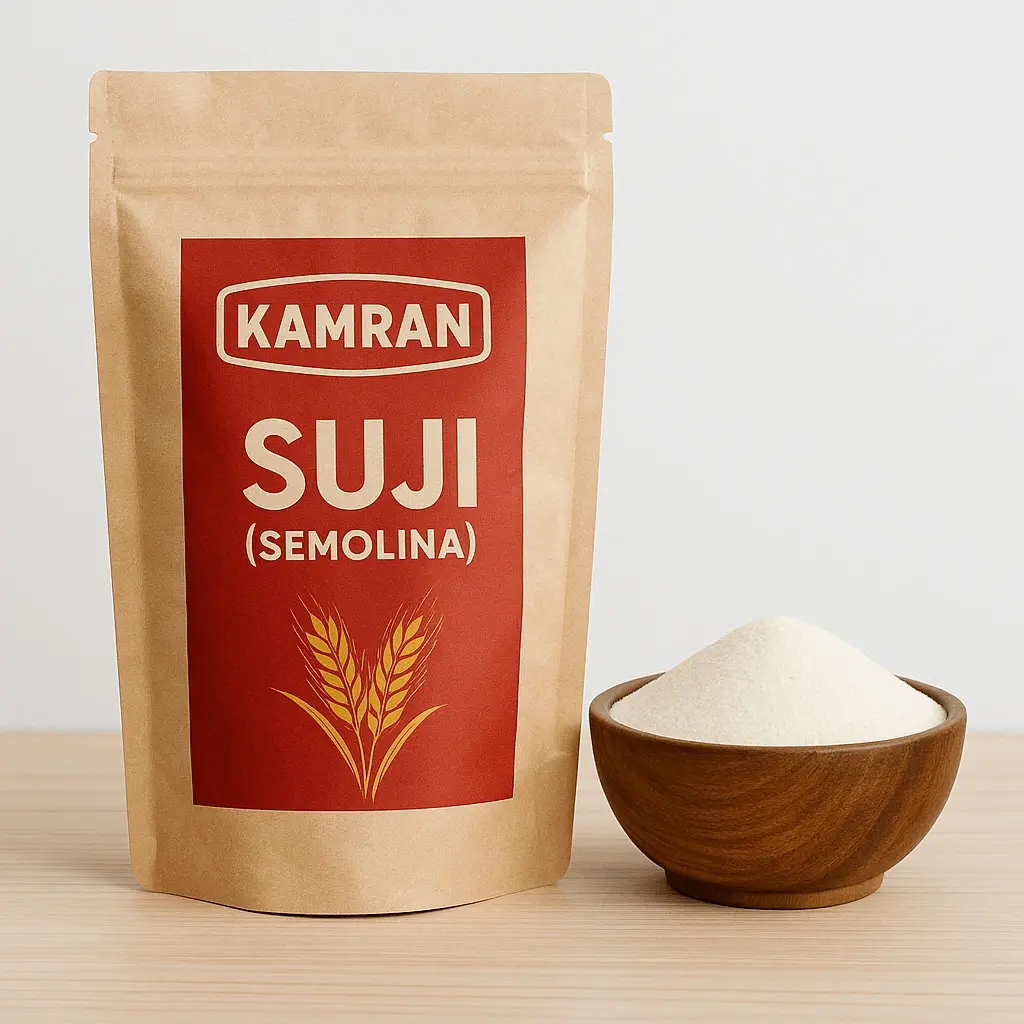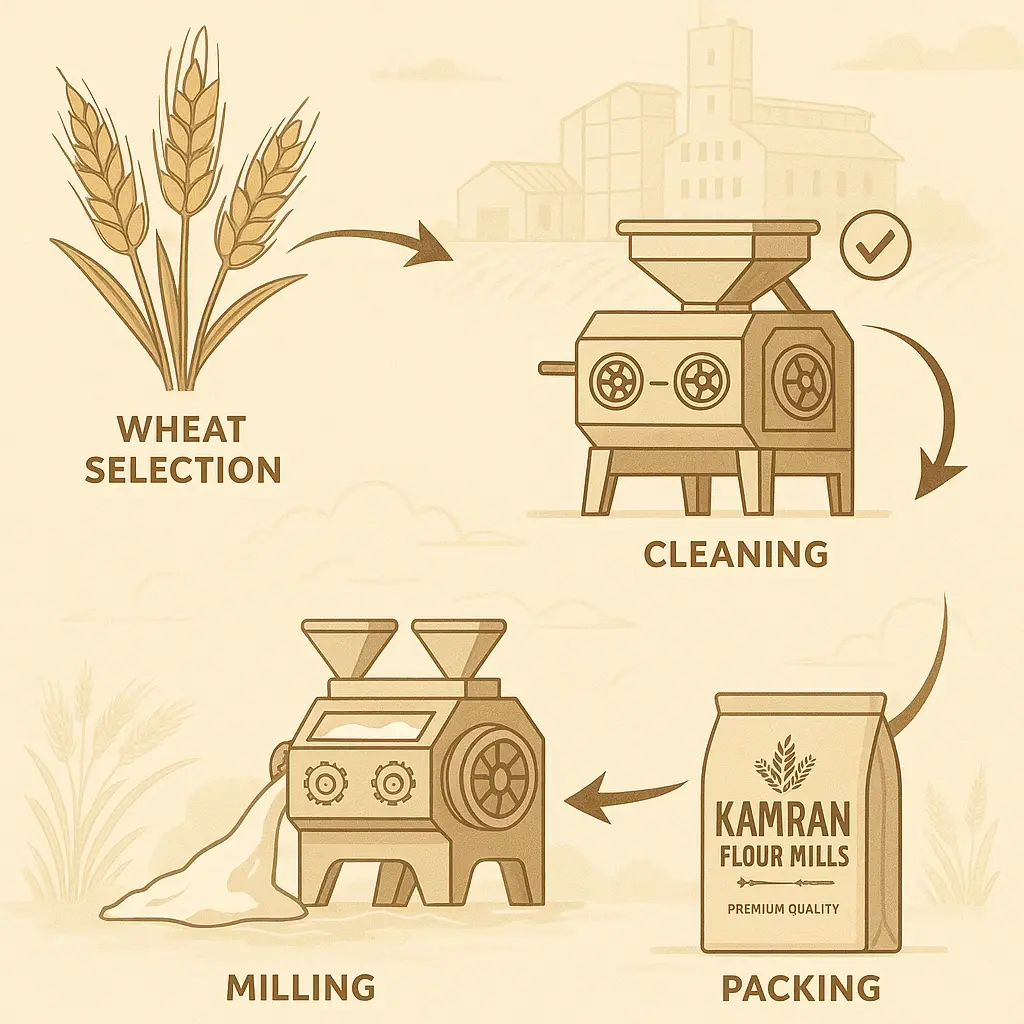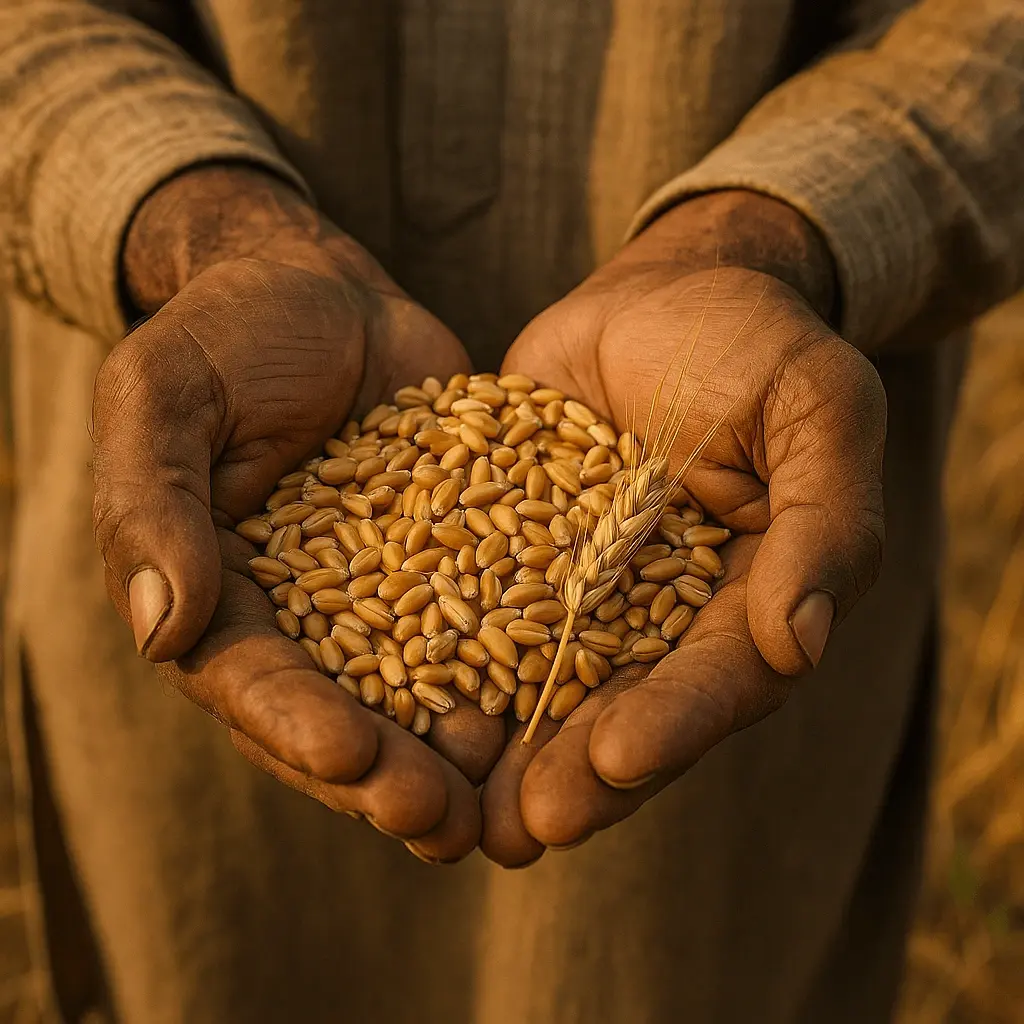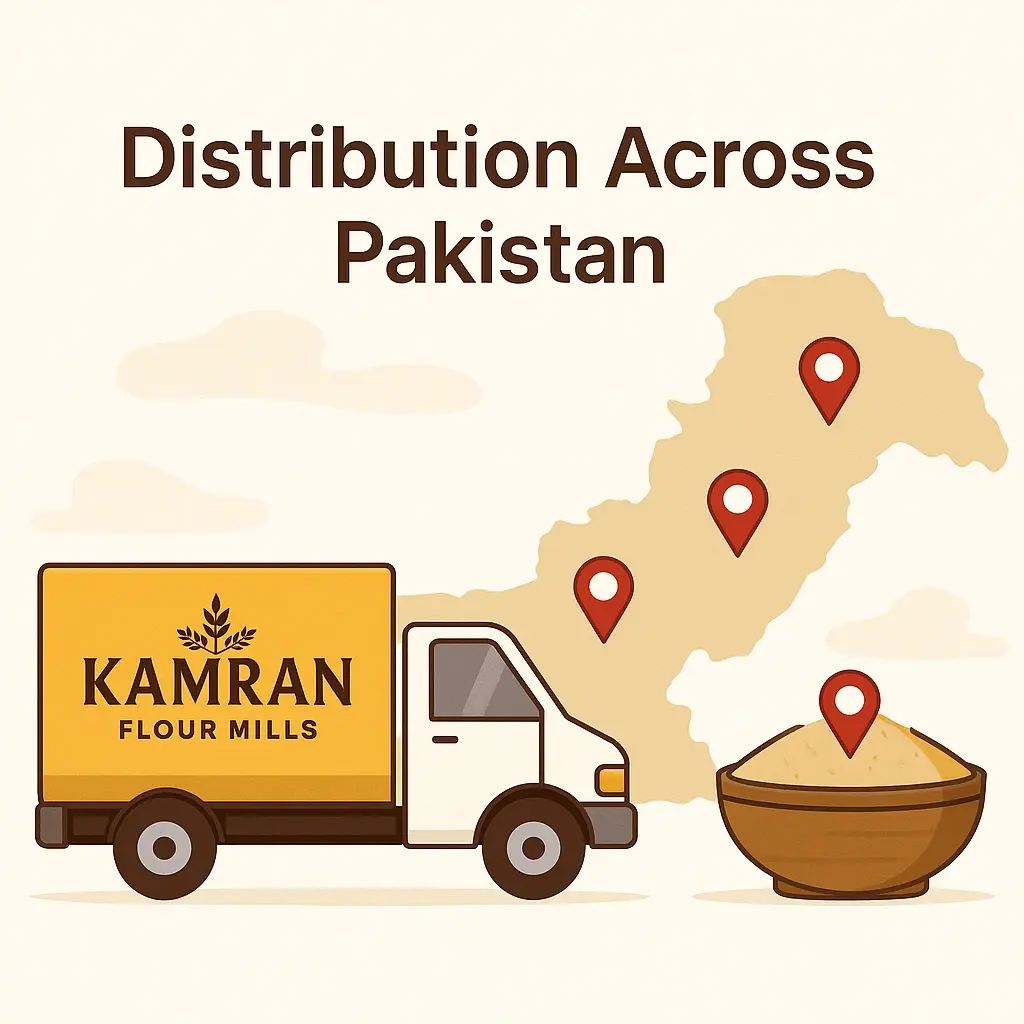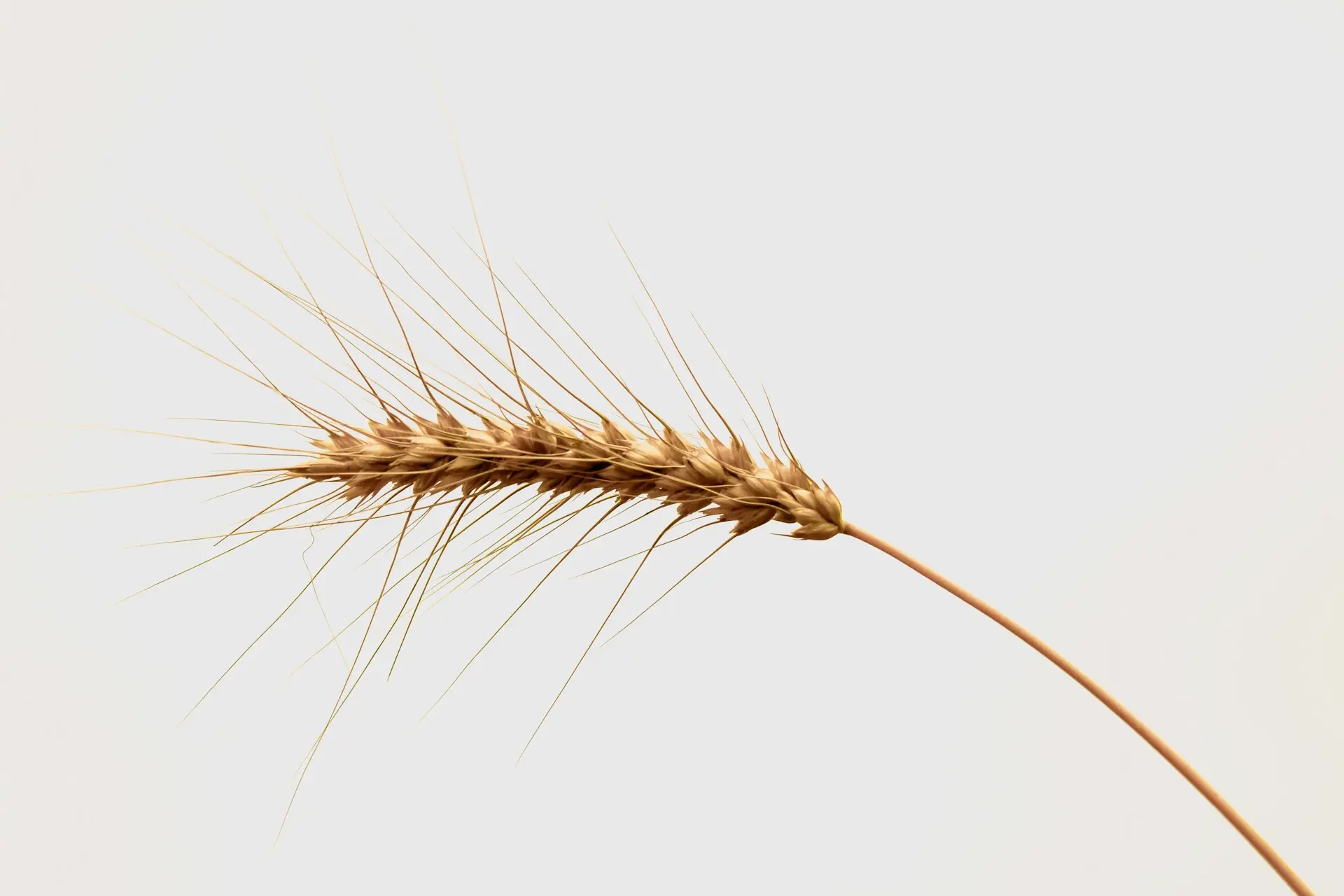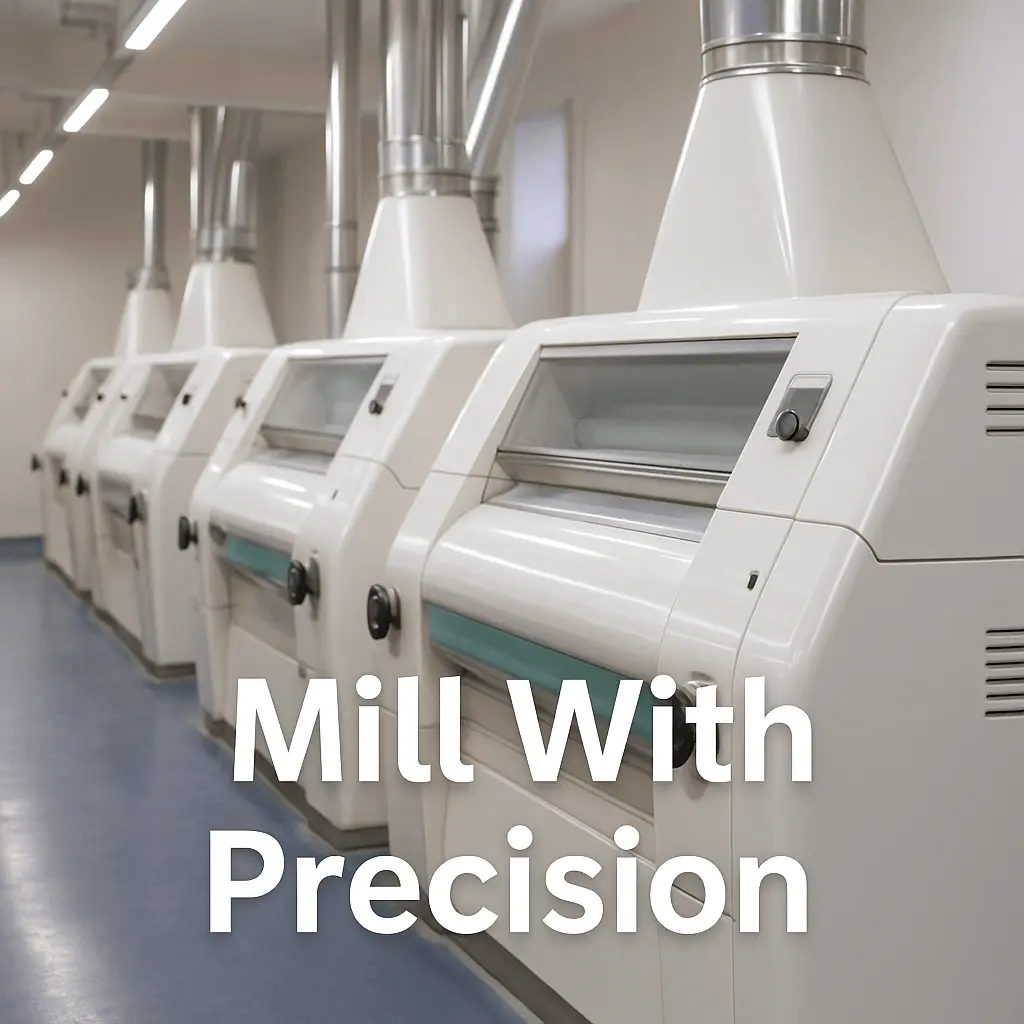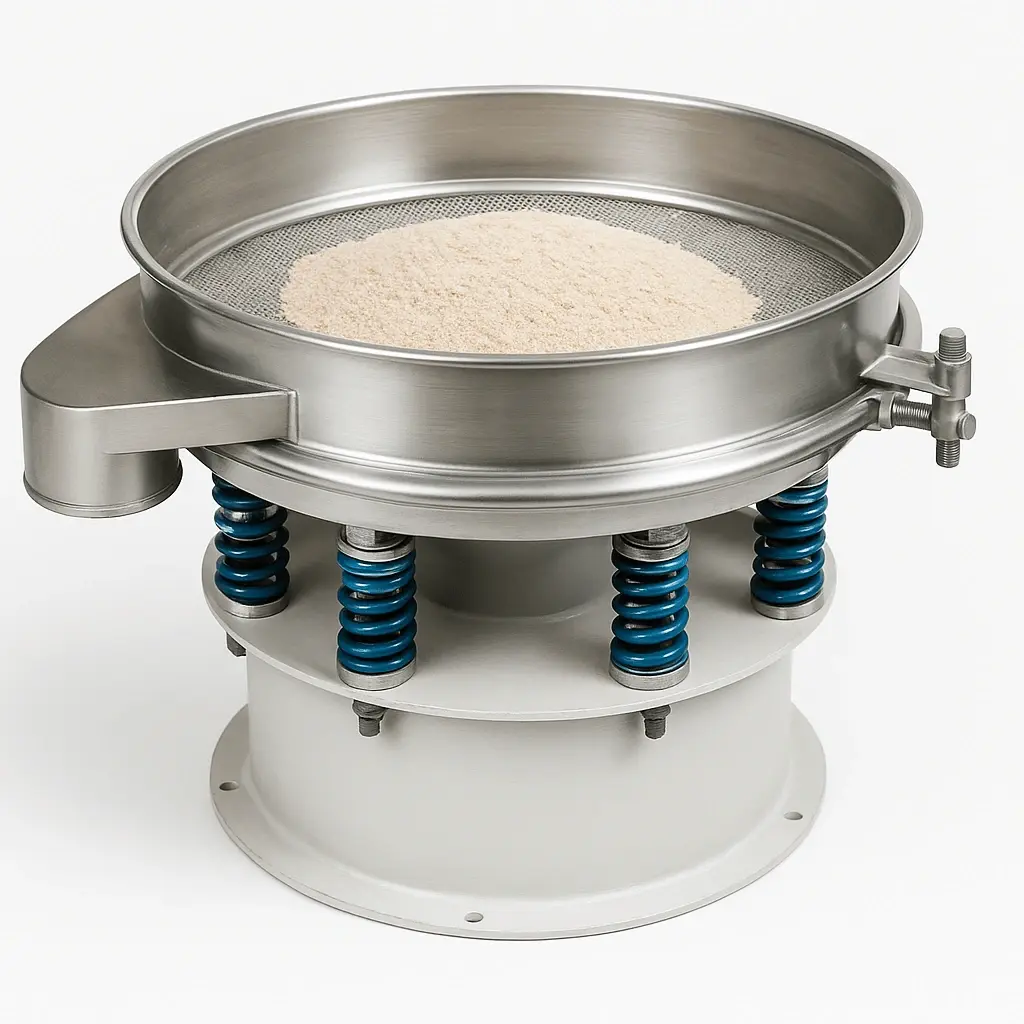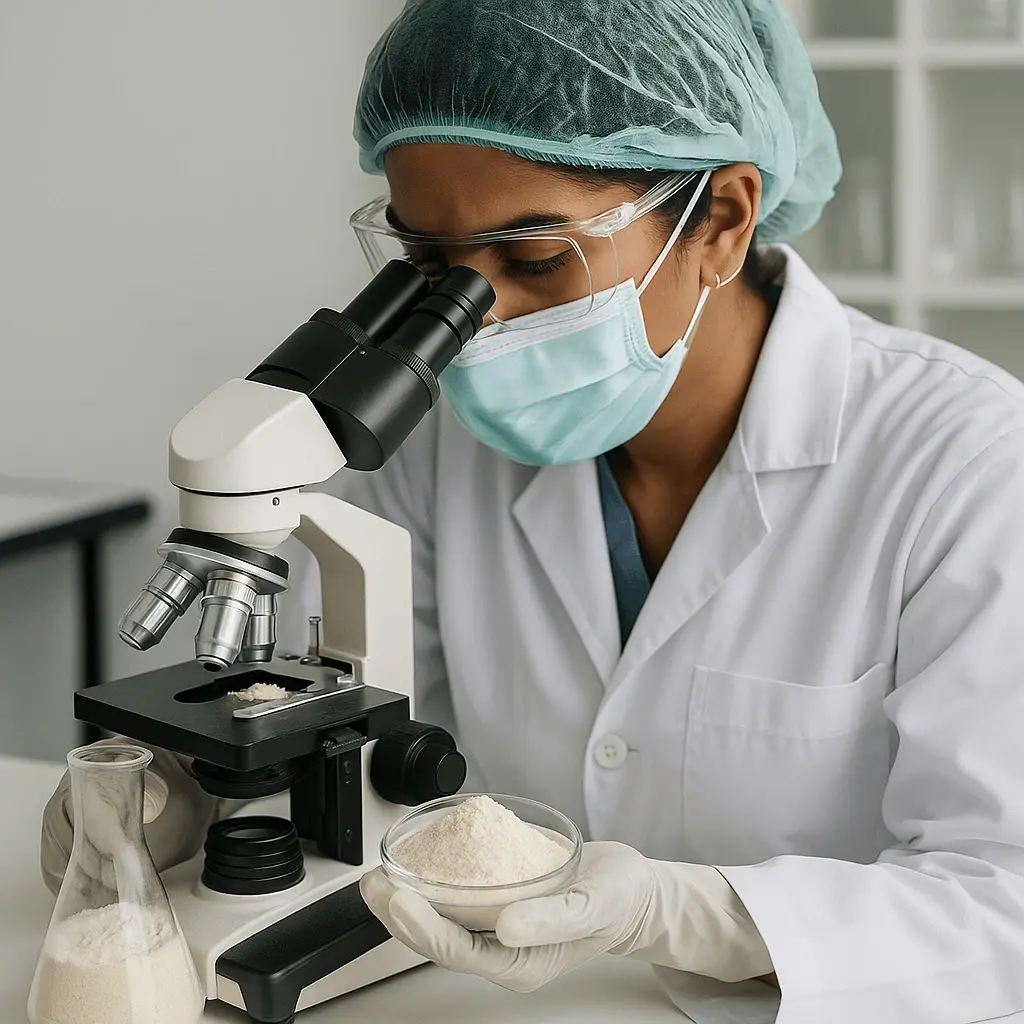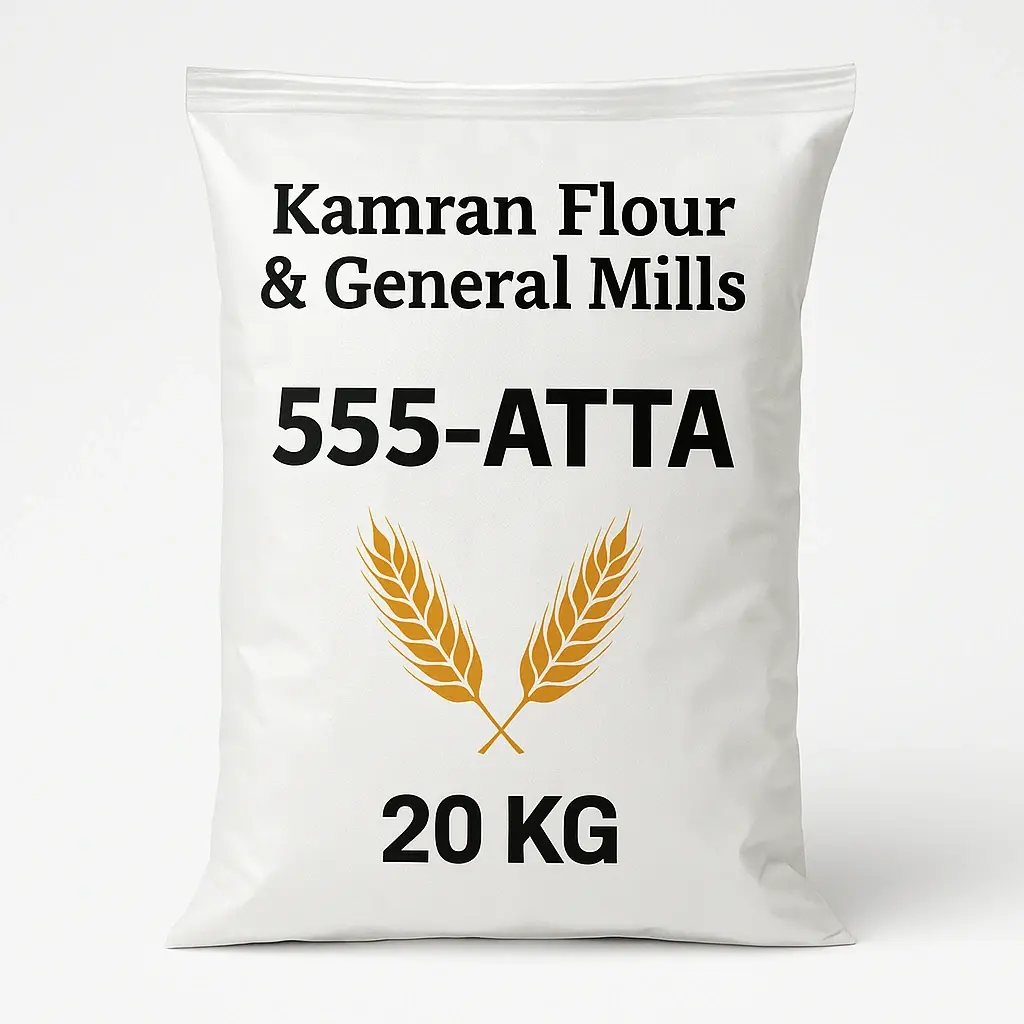1 - Grain Sourcing & Acceptance
We begin each batch with contract-grown, high-protein wheat sourced from vetted farms across Punjab’s fertile belt. Every truckload is sampled, lab-graded for moisture, protein, and purity, then tagged with a barcode for farm-to-bag traceability.
Selecting the Finest Punjab Wheat
We begin with contract-grown, high-protein wheat sourced from select Punjab farms under multiyear agreements.
- Field
Protocols: Growers follow our seed-variety and fertilizer guidelines
to achieve ≥12 % protein and <13.5 % moisture at harvest.
- Inbound
Sampling: A probe extracts core samples from every truck; labs run rapid
NIR scans for moisture, protein, and starch damage, plus strip tests
for pesticide residue.
- Visual
& Odor Check: Inspectors look for pink kernels (fusarium) and
off-odors that indicate spoilage.
- Barcode Traceability: Accepted loads receive a GS1-128 barcode linking farm, field, and test data to a lot number that follows the wheat through packaging.
